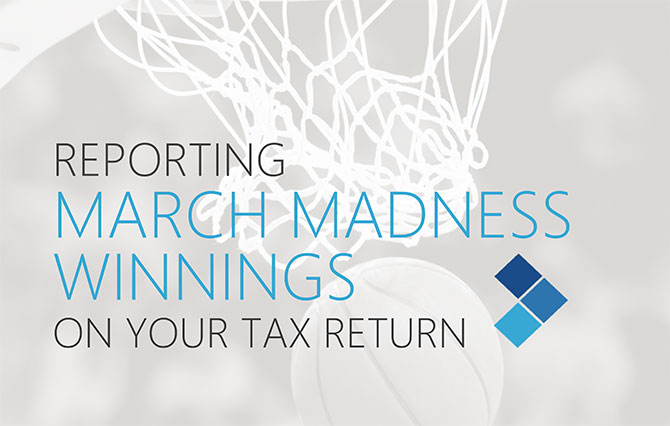How To Record Gambling Losses On Tax Return
Gamblers understand the concept of win some, lose some. But the IRS? It prefers exact numbers. Specifically, your tax return should reflect your total year’s gambling winnings – from the big blackjack score to the smaller fantasy football payout. That’s because you’re required to report each stroke of luck as taxable income — big or small, buddy or casino.
- How To Record Gambling Losses On Tax Return Filing
- Stock Losses On Tax Return
- Lottery Losses On Tax Return
- How To Record Gambling Losses On Tax Return Policy
- Report Gambling Losses On Tax Return
- Gambling Losses On Tax Return
Receipts, tickets, and checks or credit card records are also acceptable to support your claims for losses. Wins and Losses As we mentioned, you may only claim losses up to the limit of the amount of winnings you claim on your return. That means you need to have won money in order to include your losses as tax. Thankfully, the IRS relented a few years ago by saying that casual slot players can simply keep a record of the net win or net loss amount for each gambling session. The Tax Court appeared to.
If you itemize your deductions, you can offset your winnings by writing off your gambling losses.
It may sound complicated, but TaxAct will walk you through the entire process, start to finish. That way, you leave nothing on the table.
How much can I deduct in gambling losses?
You can report as much as you lost in 2019 , but you cannot deduct more than you won. And you can only do this if you’re itemizing your deductions. If you’re taking the standard deduction, you aren’t eligible to deduct your gambling losses on your tax return, but you are still required to report all of your winnings.
Where do I file this on my tax forms?
Let’s say you took two trips to Vegas this year. In Trip A, you won $6,000 in poker. In the Trip B, you lost $8,000. You must list each individually, with the winnings noted on your return as taxable income and the loss as an itemized deduction in Schedule A. In this instance, you won’t owe tax on your winnings because your total loss is greater than your total win by $2,000. However, you do not get to deduct that net $2,000 loss, only the first $6,000.
Now, let’s flip those numbers. Say in Trip A, you won $8,000 in poker. In Trip B, you lost $6,000. You’ll report the $8,000 win on your return, the $6,000 loss deduction on Schedule A, and still owe taxes on the remaining $2,000 of your winnings.

What’s a W-2G? And should I have one?
A W-2G is an official withholding document; it’s typically issued by a casino or other professional gaming organization. You may receive a W-2G onsite when your payout is issued. Or, you may receive one in the mail after the fact. Gaming centers must issue W-2Gs by January 31. When they send yours, they also shoot a copy to the IRS, so don’t roll the dice: report those winnings as taxable income.
Don’t expect to get a W-2G for the $6 you won playing the Judge Judy slot machine. Withholding documents are triggered by amount of win and type of game played.
Expect to receive a W-2G tax form if you won:
- $1,200 or more on slots or bingo
- $1,500 or more on keno
- $5,000 or more in poker
- $600 or more on other games, but only if the payout is at least 300 times your wager
Tip: Withholding only applies to your net winnings, which is your payout minus your initial wager.
What kinds of records should I keep?
Keep a journal with lists, including: each place you’ve gambled; the day and time; who was with you; and how much you bet, won, and lost. You should also keep receipts, payout slips, wagering tickets, bank withdrawal records, and statements of actual winnings. You may also write off travel expenses associated with loss, so hang on to airfare receipts.
Use TaxAct to file your gambling wins and losses. We’ll help you find every advantage you’re owed – guaranteed.
More to explore:

How Do Regular Gamblers Handle IRS?
Regular gamblers, gamers, off-track betters and wagers all take losses. No matter whether they file a tax return, get audited, have a tax lien, or try setting up an installment agreement, they usually get a raw deal from IRS about their gambling losses.
All gambling losses should be deducted to reduce tax! Let’s start there.
How To Record Gambling Losses On Tax Return Filing
Here is the general rule: Gambling winnings are taxable. Losses may or may not be deductible. Even if the player netted a loss, her winnings are not exempt. Gambling wins are not even exempt at a function promoted by a tax-exempt organization!
Winnings might not be tax-exempt. But only profits – winnings minus losses, should be taxed.
Generally speaking, though, gambling losses are tax deductible only to the extent of gambling winnings. However, the deduction for those losses must be included with “itemized” deductions. Losses are reported on the Schedule A (Form 1040), Itemized Deductions. But if you don’t itemize, you cannot deduct those losses. Meanwhile, you still must report all of your winnings as taxable income. Raw deal.
Stock Losses On Tax Return
- Obviously, this itemized rule for regular gamblers favors the IRS. Players tend to lose some of the tax break on their costs of earning gambling income. This is because:
Not all gamblers itemize their deductions. Those who don’t receive no tax break for their net losses; and - Deductions for any year’s losses cannot be greater than the winnings from year-to-year.
Still, all gamer’s get taxed tax on all the income won during that year.
(We all know that most people have net losses, not wins. How do we know? Because these wonderful, beautiful, lavish casinos are NOT built by players’ net winnings, but by their losses.)
But I Heard This Law Changed!
As we understand, in 2018 the law ceased to require a “floor” of 2% of adjusted gross income, before losses could be deducted. Translation: Before 2018, you could only deduct loss amounts greater than 2% of your income. So before 2018, you would “lose” more of your deductible losses with this 2% rule.
So yes, the law changed, temporarily until 2025. You get to deduct that other 2%, but only still if you itemize. And you’re still limited to deduct no more than your winnings. Even with the tax change since 2018, this gambling loss calculation is kind of one-sided, definitely in favor of the government.
Do I Have to Prove My Losses? Or my Winnings?
Yes, you should be able to prove your winnings and losses. Keep constant track of both. Every gambler should actually want to keep track of every dollar won, and lost. Without proof, you have the risk of overstating your income (and therefore tax). You also run the risk of understating your taxable income, which becomes a big problem in the case of IRS tax audits.
If an IRS auditor finds a substantial understatement of your tax, based on misreporting your gambling net income or loss, you may be fined a penalty. “Substantial” here can mean a $5,000 or greater understatement of your tax.
Lottery Losses On Tax Return
The Internal Revenue Code, Section 6662 gives a penalty equal to 20% of the tax difference. Plus, you also pay interest. There are also deeper punishments for intentionally understated gambling income. They could subject a person to a Civil Fraud Penalty of 75% of the tax, under IRC §6663. Worse, imprisonment is also possible, under Section §7206 of this Tax Code.
Of course, these penalties apply to understated income of any sort.
All that considered, it’s just so much easier to keep careful, consistent track.
What’s the Best Way to Keep Track of Gambling Winnings?
IRS exam agents will ask for more detail than the average gambler can provide. IRS “suggests” keeping a diary or similar record of your gambling activities. At a minimum, your records should include the dates and types of specific wagers or gambling activities. But maybe also consider writing down your winnings, ATM withdrawals, plus the name and location and name of your casino or betting venue.
How To Record Gambling Losses On Tax Return Policy
There’s a different standard for “Professional Gamblers.”
Report Gambling Losses On Tax Return
IRS auditors even ask who were the people gambling or entertaining with you. They suggest documenting that information also. IRS will definitely follow-up review of their tax returns as well. This step tends to only benefit the government. As you might imagine, reporting your gambling buddies to IRS would quickly shorten your list of friends.
Of course, all of this is difficult to do when you’re on a roll, when you’re up and down, or when you can’t climb back out of the hole. Plus, there’s alcohol. It’s just difficult to journal. And IRS knows this.
But there is an easier way to track my gambling, for tax purposes. If you are not able to keep a diary of your gambling transactions, use third-party documents
- Casinos offer “loyalty reward” cards and memberships. Use those cards to track all buy-ins, as well as winnings. You can request an Activities Statement for all activity recorded by that card swiped. This includes detail of all gambling dates. times. amounts transacted, plus descriptions of those transactions. They even include your account balances, wins and losses information, and sometimes time spent gambling online. This is extremely helpful information.
- Your gaming venue may even provide other services, to help you better keep up with your progress. Ask. And use them.
- Whenever possible, use plastic cards, not cash. Your bank and card carriers will track your cash-out and expenses. By themselves, they prove some expense. But paired with the Activity Statements (mentioned above), these are powerful support for you.
- Of course, casinos will issue a Form W-2G, whenever taxes are withheld. Generally, if you win more than $5,000 on a wager, and the payout is 300 times or more the bet, the casino or gaming venue must withhold 24% of your winnings for income taxes. At tax time, this helps too.
- These same rules apply for state lotteries. If you play the lottery, setup a small “cash card” for your tickets. Make sure that card issues a statement of your transactions. Use that card for nothing else, except for your lotto tickets. Seriously, not cigarettes, not beer, not gasoline – nothing else. Put your winnings in that account, too. Or try, anyway.
Gamblers win and lose. But only gambling profits – winnings minus losses – should be taxable. Remember that.
Gambling Losses On Tax Return
J Anton Collins is a tax lawyer and retired CPA, formerly with IRS. He is a regular blogger for Tax Law Offices Business Tax Settlement Corp.